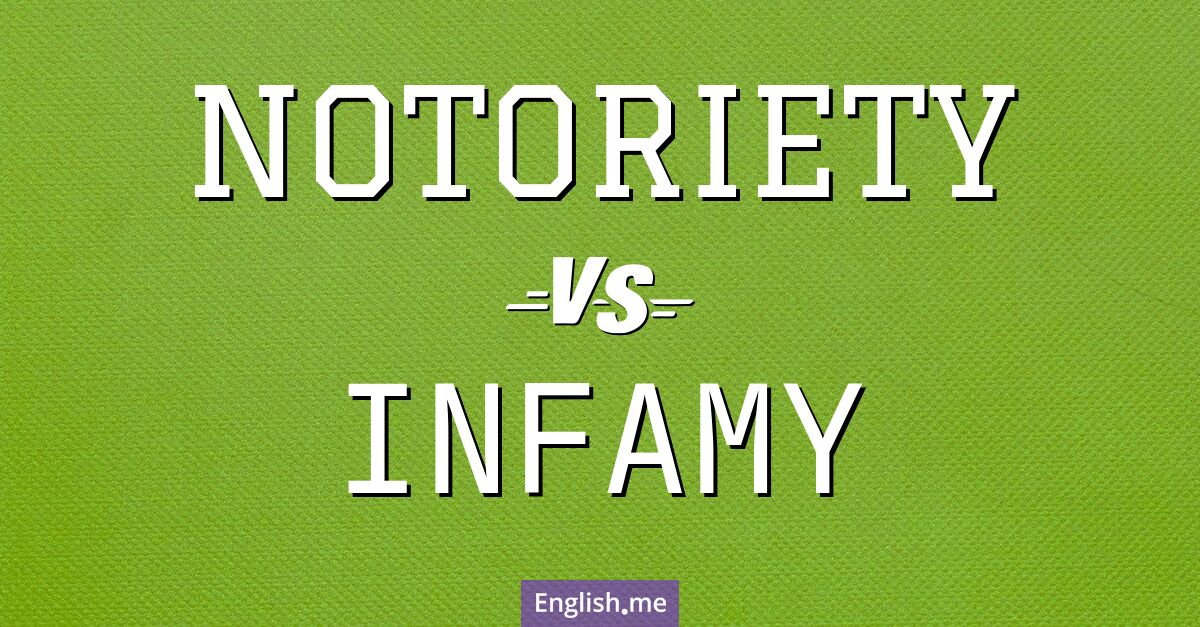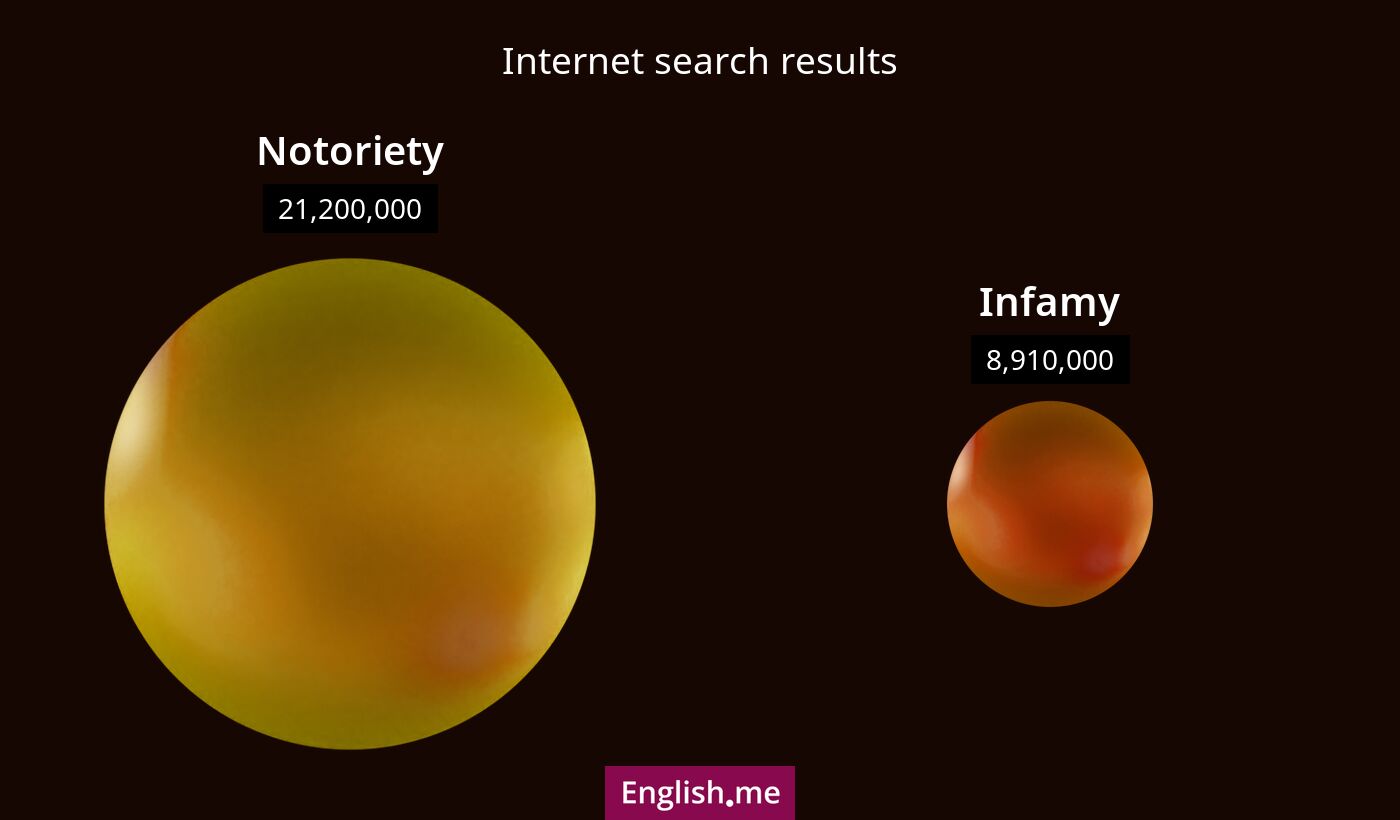"Notoriety" vs. "infamy": the battle of bad reputations
Reviewed and edited by  Lloyd Cooper 13/10/2024, 11:08
Lloyd Cooper 13/10/2024, 11:08
English.me team member

 What is similar?
What is similar?
Both words "notoriety" and "infamy" refer to being famous or well-known, typically for a negative reason or due to undesirable behavior. They both convey a sense of recognition that is not necessarily positive and often involve a level of scandal or disapproval from society.
 What is different?
What is different?
The word "notoriety" implies being well-known for something specific and does not always carry a moral judgment, though it often suggests a certain level of disrepute. "Infamy" usually carries a stronger negative connotation and indicates being known for something particularly wicked, scandalous, or criminal. Infamy suggests a notorious reputation that evokes shame and disgrace.
 Which one is more common?
Which one is more common?

 Examples of usage
Examples of usage
Notoriety- The artist gained notoriety for his controversial paintings.
- The company achieved notoriety due to its involvement in several scandals.
- The dictator's actions brought infamy upon his regime.
- Her betrayal earned her infamy among her former allies.

 English
English español
español française
française italiano
italiano deutsche
deutsche 日本語
日本語 polski
polski česky
česky svenska
svenska Türkçe
Türkçe Nederlands
Nederlands